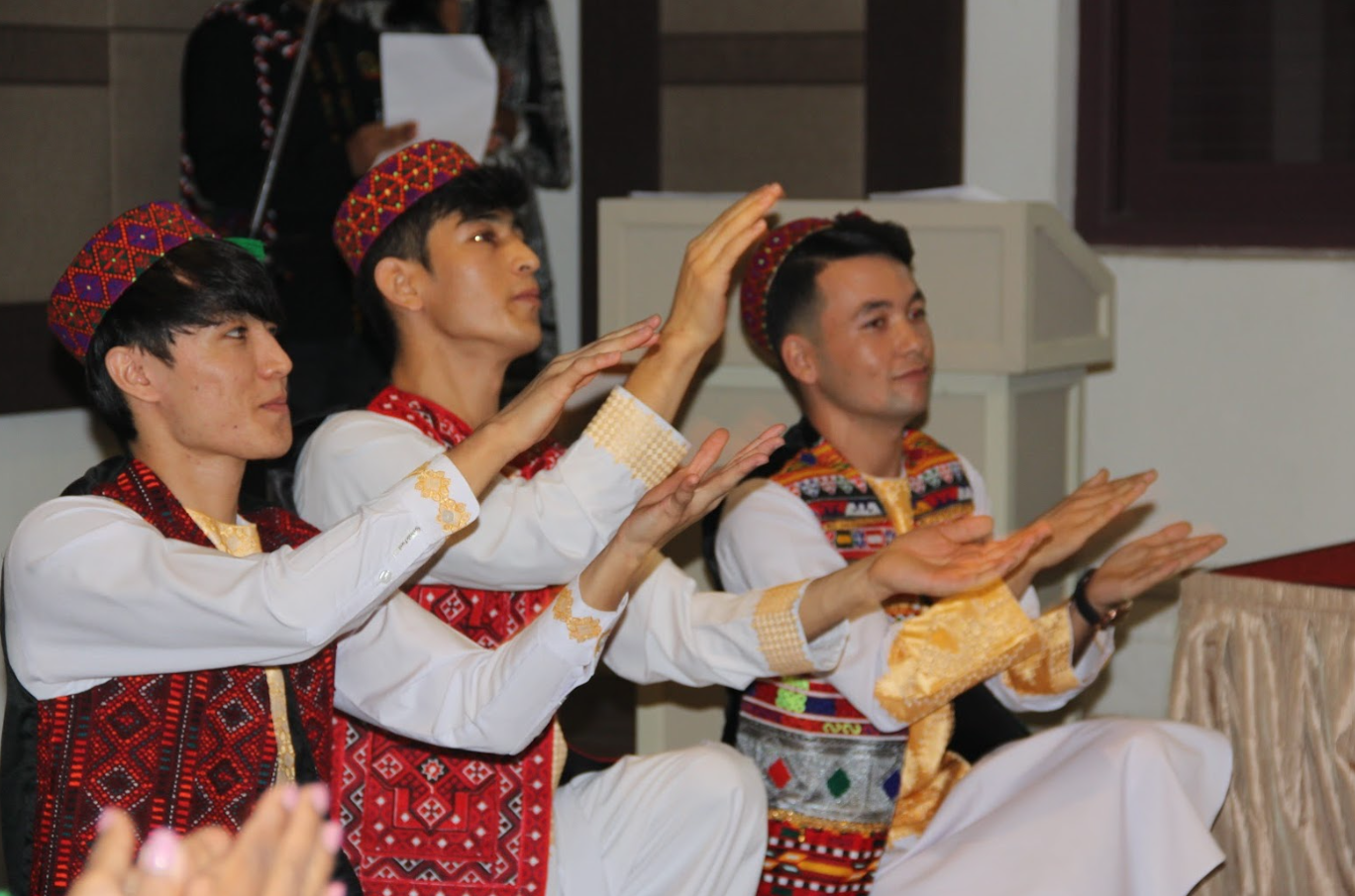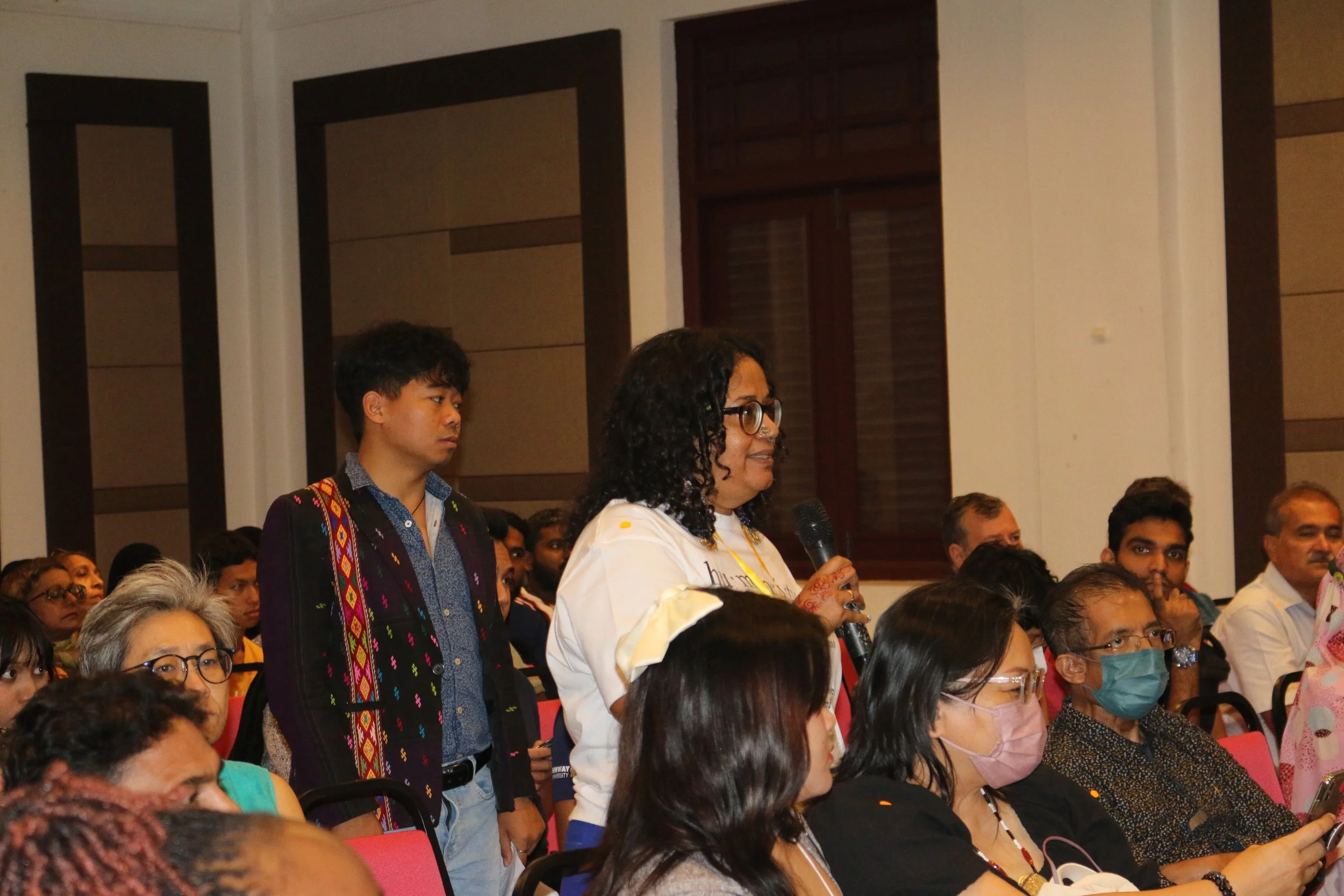Celebrating Courage: Highlights from the Refugee Festival Malaysia 2023
The 6th Annual Refugee Festival was held from 8-10 September 2023 at the historic Kuala Lumpur & Selangor Chinese Assembly Hall (KLSCAH) and brought together over 1500 public attendees across the 3 days. Filled with a wide array of cultural and artistic programs, the festival saw significant success in bringing together diverse communities representing 30+ ethnicities. The festival showcased the vibrancy and resilience of refugee communities, blending artistic celebration with powerful storytelling and dialogue through arts, music, dance, food, storytelling, poetry, theatre, films, and more!
History of the Festival
The Refugee Festival was founded by renowned investigative journalist, Mahi Ramakrishnan, in 2017 through the first event that was held at the Black Box in Publika in August that year. Its success and the heart-warming feeling it brought to the participants and visitors alike led it to becoming an annual event for another 4 consecutive years after that – the pandemic, notwithstanding, the last refugee festival in 2021 was conducted online. Each of the festivals offered an interactive and entertaining way for audiences to engage with refugee communities through their cultural expressions including music, dance, art and storytelling.
Why the Festival Matter?
As of February 2025, Malaysia is home to around 192,800 registered refugees and asylum seekers, including more than 54,000 children under 18, according to UNHCR. Despite these numbers, the country has yet to ratify the 1951 Refugee Convention or its 1967 Protocol, leaving refugees without legal status or protection. Without a proper legal framework in place, refugees in Malaysia are denied access to basic rights like education, healthcare, and the right to work. The government’s stance has often been to label refugees and asylum seekers as “illegal migrants,” a classification that is then used to justify arrest, detention, and even deportation.
Since the Covid-19 pandemic, there’s also been a disturbing rise in xenophobia and hostility—fuelled by misinformation and political rhetoric. According to a 2023 survey by Ipsos, 72% of the Malaysian public favored turning away refugees altogether, with 73% believing that refugees came for economic gain or welfare benefits. Additionally, 56% of respondents said they were worried that the crime rate might increase, and 54% said they were worried about the spread of infectious diseases from refugees.
These negative perceptions have had very real consequences. Refugee leaders and community members have reported a surge in cyberbullying, harassment, physical intimidation, and even violence. In response, countless activists and organizations have stepped up—working tirelessly to counter harmful narratives and spread factual information. Through conversations with refugee leaders, it became clear that we needed human connection. That’s where cultural events like the Refugee Festival come in. They provide a platform for people to meet, talk, and share each other’s stories and journeys.
The Refugee Festival is one of the few platforms that genuinely bridges the gap between communities. It invites Malaysians to sit beside refugees, not just as guests—but as neighbours, collaborators, and friends. By celebrating refugee voices, creativity, and resilience, the festival plays a key role in breaking down stereotypes, challenging fear, and building a more inclusive Malaysia—one connection at a time.
Community-Led with Meaningful Refugee Participation
Echoing Mahi Ramakrishnan’s vision for the festival to be led by refugees themselves, the 2023 festival was spearheaded by Hasan Al-Akraa, a Syrian refugee activist and founder of the Refugee Emergency Fund (REF). Hasan brought together a remarkable and a diverse volunteer Task Team consisting of local Malaysians, refugees, expats, students, and migrants who collectively planned and executed the festival. This meaningful inclusion of affected communities is exactly what the festival thrives to be - a platform by and for refugees, and 2023 festival saw that happen.
Festival Highlights
Throughout the 3-day festival, a vibrant bazaar and art exhibition ran from noon till night, featuring 50+ vendors and 20+ artists. Refugee-run stalls offered everything from handmade crafts to delicious food and henna art. The art and photo exhibits featured work by refugee artists and photographers capturing life in places like Afghanistan, Algeria, and the Rohingya camps in Bangladesh.
Day One kicked off with a high-energy dance by Afghan performers and a soulful performance by singer Ali Safdari. One of the highlights was a panel on education and careers, where refugee leaders shared the struggles they face accessing school and work—and how they’re finding ways forward. The evening featured powerful short films like Tough Year and Trapped People, followed by Q&As with the filmmakers. As the night wrapped up, there were many more performances and networking.
Saturday kept the momentum going with music from Iranian street musician Amirmasoud Hamidian and Malaysian singer Qi Fang. There was a special screening of a short film by Dari Dapur, featuring Syrian and Rohingya women with Malaysian public figures. One particularly eye-opening session was led by Hannah Jambunathan, who spoke about what life is like for refugees locked up in immigration detention. Refugee-led theatre production “Breaking Stereotypes: Tales of Hope and Survival” by The Azalea Group was an emotional play that touched many hearts as it showed the harsh realities that many refugees face.
Remembering Arif
Saturday ended with a heartfelt dance performance by Arifwaran Shaharuddin—a gifted artist whose spirit left a lasting impression on all of us. With heavy hearts, we remember that Arifwaran sadly passed away in March 2025. We keep his memory alive and will always remember his ever-loving soul. We thank him for being part of the festival and for sharing his light and talent with us.
Sunday brought the festival to a meaningful close. It started with a traditional Lisu dance and a rap performance by Afghan artist Hadi. In the afternoon, the Human Library took centre stage—where refugees shared personal stories about fleeing conflict, living with disability, advocating for their communities, and surviving the odds. There was also a roundtable about identity and belonging, where speakers opened up about what it means to build a life in Malaysia when your existence isn’t officially recognized. The festival wrapped up with a theatre performance by Parastoo Theatre (The Lost Hope in Darkness) and a soulful musical set by Jes Ebrahim and Markiza Brown.
Sponsors
Unlike the past festivals that were held in conjunction with World Refugee Day on 20th June, the 2023 Festival was held in September due to funding delays. Because of the initial lack of funding, we launched a crowdfunding campaign to cover main costs and compensate the performers. We soon had sponsors joining our mission and contributing funds, skills, and in-kind items that made the festival a success - special thanks to KLSCAH, ASEAN Parliamentarian for Human Rights, Carefugees, UNHCR Malaysia, International Detention Coalition, Buga Buga, Lalamove, Asia Justice and Rights, The Canadian Embassy in Malaysia, ARC Rhinowrites Video Productions, Kource, North South Initiative, Innovation for Change, and many others who made this festival possible.
Gallery






































